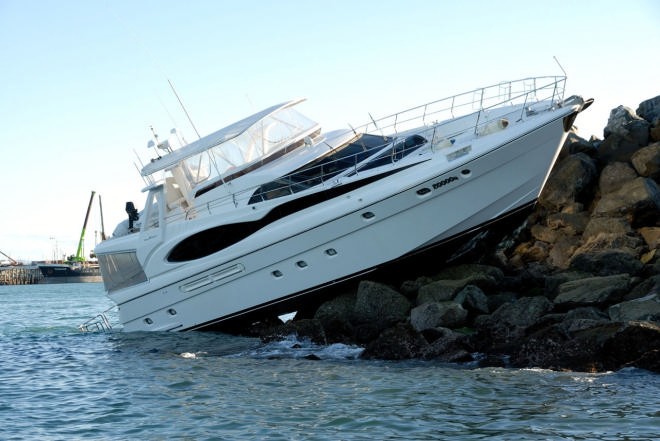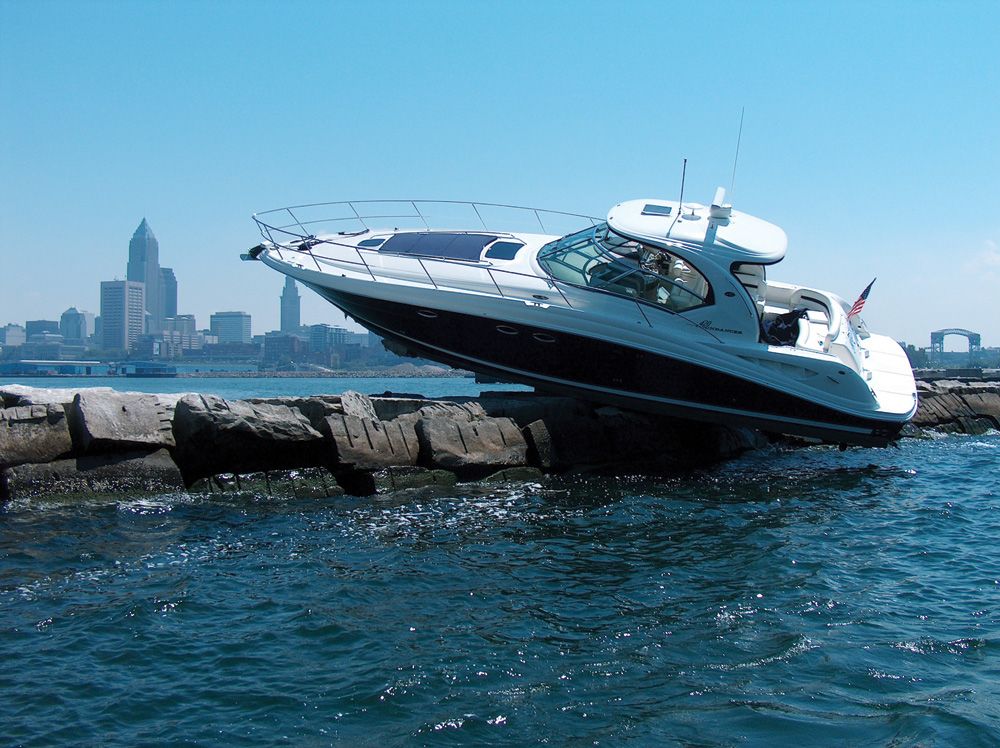
Yacht Insurance: A Guide to Understanding the Basics
Yacht insurance is an essential component of yacht ownership, providing protection and peace of mind for owners in the event of unexpected incidents on the water. In this blog, we’ll dive into the basics of yacht insurance, including what it is, why it’s important, and what coverage options are available. Whether you’re a seasoned yacht owner or just starting to explore the world of yacht ownership, understanding the fundamentals of yacht insurance can help you make informed decisions and protect your investment.
FOUNDED IN 2018, INLUXUSS INSURANCE GROUP IS A BROKERAGE POWERHOUSE THAT PRIDES ITSELF.
Types of Yacht Insurance
Yacht insurance is not a one-size-fits-all product, and there are different types of coverage available to suit different needs. Here are the most common types of yacht insurance:
Hull Insurance:
This is the most basic form of yacht insurance that covers physical damage to the boat, including damage caused by collisions, fire, theft, and weather events.
Liability Insurance:
Liability insurance covers you if you cause damage to another person’s property or injure someone while operating your yacht.
Personal Effects Coverage:
This type of insurance covers personal belongings on your yacht, including clothing, electronics, and other items.
Emergency Towing and Assistance Coverage:
This coverage provides assistance if your yacht breaks down or if you need emergency towing services.
Other Optional Coverages:
Additional coverage options may include protection against piracy and kidnap and ransom, among others. It’s essential to discuss these options with your insurance provider to understand what may be available and what may be best suited for your situation.
Coverage Limits and Deductibles
When it comes to yacht insurance, coverage limits and deductibles are two important factors to consider. Coverage limits refer to the maximum amount your insurer will pay for a covered loss or damage, while deductibles are the amount you must pay out of pocket before your insurance coverage kicks in.
It’s essential to choose the right coverage limits and deductibles for your yacht insurance policy. If you have high coverage limits, you’ll likely pay higher premiums, but you’ll have more protection in case of a major loss or damage. On the other hand, if you have a high deductible, you’ll have lower premiums, but you’ll be responsible for a larger portion of the cost if you need to file a claim.
When choosing your coverage limits and deductibles, consider your yacht’s value, how often you use it, and your risk tolerance. It’s also a good idea to consult with an experienced insurance agent who can help you determine the best coverage options for your specific needs.
In general, it’s recommended to choose a coverage limit that is equal to the value of your yacht and a deductible that you can comfortably afford in case of a claim. Remember that while higher coverage limits and lower deductibles may cost more upfront, they can provide greater peace of mind and protection in the long run.

Factors Affecting Yacht Insurance Premiums
Yacht insurance premiums are affected by various factors, including:
-
Your Yacht’s Value: The value of your yacht is one of the main factors that insurance companies consider when determining your premiums. The higher the value of your yacht, the higher the premiums will be.
-
Your Boating Experience: Insurance companies also consider your boating experience when determining your premiums. If you are an experienced boater with a clean boating history, you may be eligible for lower premiums.
-
Your Boating History: Insurance companies will also look at your boating history, including any accidents or claims you may have filed in the past. If you have a history of accidents or claims, your premiums may be higher.
-
Your Yacht’s Use and Location: Insurance companies will also consider how you use your yacht and where you keep it. For example, if you use your yacht for racing or charters, your premiums may be higher. Similarly, if you keep your yacht in an area that is prone to storms or other hazards, your premiums may be higher.
Understanding the factors that affect your yacht insurance premiums can help you make informed decisions about your coverage. By taking steps to minimize risks, such as maintaining your yacht and practicing safe boating, you can potentially lower your premiums and ensure that you have the coverage you need.
How to Choose the Right Yacht Insurance Policy
When it comes to choosing the right yacht insurance policy, it’s important to do your research and compare policies from different insurers. Here are some tips to help you choose the right policy for your yacht:
-
Researching and Comparing Policies: Start by researching different insurers and the policies they offer. Look for policies that provide comprehensive coverage for your yacht and consider the costs and benefits of each policy.
-
Choosing a Reputable Insurer: It’s important to choose a reputable insurer with a proven track record of providing quality coverage and excellent customer service. Look for an insurer that has a strong financial rating and positive customer reviews.
-
Understanding Policy Terms and Conditions: Be sure to read the policy terms and conditions carefully to understand what is covered and what is not. Ask questions and seek clarification if you’re unsure about any aspect of the policy.
-
Consider the Costs and Deductibles: Be sure to compare the costs and deductibles of different policies. While it may be tempting to choose a policy with a low premium, it’s important to consider the deductibles and the out-of-pocket expenses you may face if you need to make a claim.
By taking the time to research and compare policies, choosing a reputable insurer, understanding policy terms and conditions, and considering the costs and deductibles, you can find the right yacht insurance policy to protect your investment and give you peace of mind while you’re out on the water.
Making a Yacht Insurance Claim
Even with the best yacht insurance policy in place, accidents can still happen. That’s why it’s important to know what to do in the event of a claim. Here are the steps you should take if you need to make a claim on your yacht insurance policy:
-
Contact your insurer: As soon as possible after the incident, contact your insurance provider to report the claim. You will be asked to provide details about the incident, such as the date, time, and location, as well as any other relevant information.
-
Document the damage: Take photos and videos of any damage to your yacht and any other property involved in the incident. This can help provide evidence for your claim.
-
Provide all requested information: Your insurer will likely ask for additional information to process your claim, such as a police report or witness statements. Make sure to provide all requested information in a timely manner.
-
Work with your insurer: Your insurer will assign a claims adjuster to your case, who will work with you to assess the damage and determine the appropriate payout. Be sure to work closely with your adjuster and provide any additional information or documentation they request.
-
Get repairs: Once your claim has been approved and processed, you can proceed with getting your yacht repaired. Your insurer may have preferred repair shops or providers they work with, so be sure to ask for recommendations.
It’s important to note that making a claim can potentially increase your insurance premiums, so it’s always a good idea to weigh the costs and benefits of making a claim before proceeding.
By following these steps, you can help ensure a smoother claims process and get back on the water as soon as possible.

Frequently Asked Questions about Yacht Insurance
Yacht insurance can be complex and confusing, which can lead to a lot of questions from boat owners. Here are some of the most frequently asked questions about yacht insurance, along with some helpful answers.
What is the difference between yacht insurance and boat insurance?
Is yacht insurance required by law?
What does yacht insurance typically cover?
How much does yacht insurance cost?
Do I need liability coverage if I only use my yacht for personal use?
Can I add additional coverage to my yacht insurance policy?
How do I make a claim on my yacht insurance policy?

Addressing Misconceptions about Yacht Insurance
There are many misconceptions about yacht insurance that can cause confusion and misunderstandings. Here are a few of the most common myths and the truths behind them.
Truth:
While yacht insurance can be more expensive than boat insurance, there are many factors that can affect the cost, and it's possible to find affordable coverage that meets your needs.
Truth:
Even if you only use your yacht occasionally, accidents can still happen, and without insurance, you could be on the hook for expensive damages or legal fees.
Truth:
While some homeowner's insurance policies may provide limited coverage for small boats, they typically do not cover larger vessels like yachts. It's important to have a separate yacht insurance policy that provides adequate coverage.




